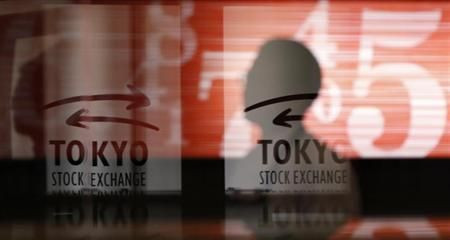
Reuters reported that the Japanese yen's value dropped to its lowest since October 2008 today, to 101.98 yen per dollar. The collapse in the yen was felt throughout financial markets, as Japanese investors moved to buy more foreign assets. Combined with optimism about growth in the U.S. labor market, it also triggered a sell-off in oil and gold, as the strength of the dollar made commodities jump in price for holders of other currencies. The fall in the price of oil was also intensified by rising supplies and fears that growth in China's economy may be slowing.
The U.S. dollar gained on currencies across the board, reflecting optimism that recent improvements in the U.S. labor market would continue. It is also expected in response, the Federal Reserve may begin to scale back its efforts in monetary easing, a policy designed to give a boost to a moribund economy.
RELATED: Swiss Lingerie Maker Releases 'Abenomics Bra'
Japan has seen about 15 years of deflation, a period in which the nation's economy grew little. But Prime Minister Shinzo Abe -- elected in mid-November 2012 -- has embarked upon a campaign to change that with his "three-arrow" economic plan, which includes the printing of more money by the Bank of Japan to hit an inflation target of 2 percent per year.
Some financial analysts believe the dollar will rise to 105 yen this summer and to 110 by the end of the year, though other sources say it will end at closer to 105.
The falling value of the yen should help Japanese exporters in the short term, in accordance with Prime Minister Abe's plan. U.S. automakers have accused his government of manipulating its currency to give their Japanese competition an unfair advantage.
RELATED: New York City May Let Non-Citizens Vote In City Elections
"The market setting the currency exchange rate is just really, really important to global free trading rules," Ford Motor Co. (F) Chief Executive Officer Alan Mulally told Bloomberg News. "Any time you don't, that's distorting the market. It's not good for anybody around the world."
Toyota, the world's biggest carmaker, will reap the benefits of an estimated $1,500 per car, according to Morgan Stanley. The weaker yen is expected to encourage Japanese automakers to spend the extra money on better components or accessories instead of cutting prices in their efforts to beat out GM, Ford and Hyundai for customers, Edwin Merner, president of Atlantis Investment Research Corp., told Bloomberg.
© 2025 Latin Times. All rights reserved. Do not reproduce without permission.



